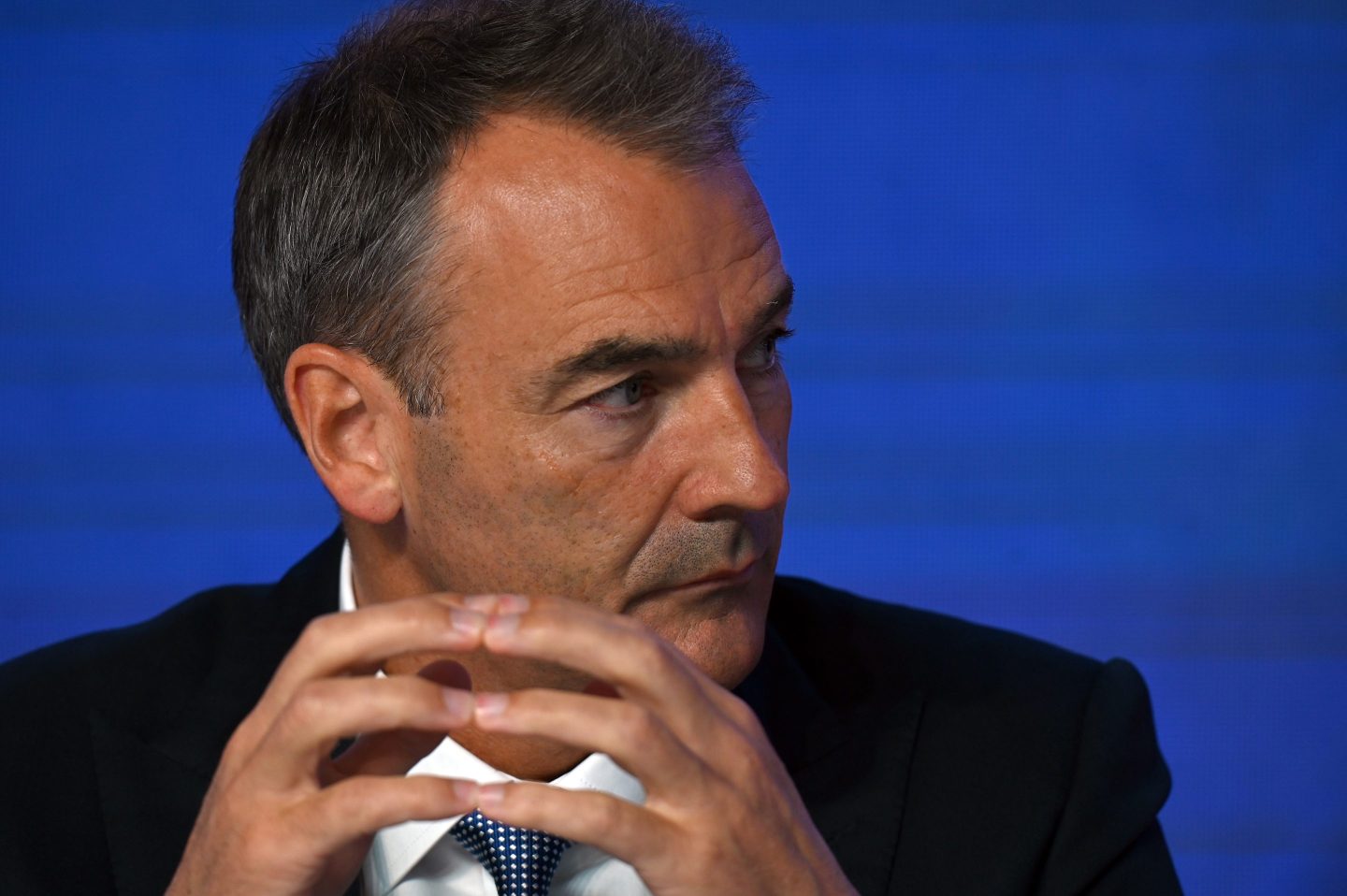BP CEO Pay Cut: 31% Reduction Explained

Table of Contents
The Details of the BP CEO Pay Cut
Percentage Reduction and Financial Impact
Bernard Looney's total compensation package experienced a 31% reduction. While the exact figures vary depending on the reporting period and the inclusion of long-term incentive plans, the cut represents a substantial decrease in his earnings. For example, if his previous total compensation was $10 million, the 31% reduction would amount to a $3.1 million decrease, resulting in a current compensation of approximately $6.9 million. This significant financial impact underscores the seriousness of the decision and its potential implications for future executive compensation strategies. The exact figures should be verified with BP's official financial statements.
Reasons Cited by BP for the Reduction
BP's official statement regarding the pay cut cited several factors. While the company hasn't explicitly attributed the reduction to a single cause, it's likely a combination of factors contributed to the decision.
- Link to official BP press release or statement: [Insert link to official BP press release here – replace this bracketed information with an actual link]
- Specific performance targets: Although BP may not have explicitly stated missed targets, the overall context suggests performance-related concerns might have played a role. The energy sector faced significant challenges, including volatile oil prices and increased regulatory scrutiny.
- Company financial performance: The decision to cut Looney's pay likely reflects a conscious effort by BP to align executive compensation with the company's overall financial performance and the prevailing economic climate. The company's recent financial reports would provide a clearer picture.
Shareholder Activism and its Influence
Pressure from Investors
Shareholder activism played a significant role in pressuring BP to reconsider its executive compensation structure. Growing concerns over executive pay, particularly in the context of fluctuating oil prices and the energy transition, led to increased pressure from investors.
- Prominent shareholder groups: [Insert names of prominent shareholder groups or activist investors involved – replace this bracketed information with actual names]
- Shareholder resolutions: [Insert details about any shareholder resolutions or proposals related to executive pay – replace this bracketed information with actual details]
- Broader trend: This incident highlights a broader trend of shareholder activism targeting excessive executive compensation within the energy industry. Investors are increasingly demanding greater transparency and accountability regarding how executive pay aligns with company performance and broader societal concerns.
Wider Implications for the Energy Sector
Setting a Precedent?
The BP CEO pay cut could indeed set a precedent for other oil and gas companies. The move sends a clear signal that excessive executive compensation is coming under increased scrutiny, particularly in an industry facing considerable environmental and economic pressures.
- Similar pay cuts: While no identical instances have emerged immediately, close monitoring of competitor companies like Shell and ExxonMobil will reveal whether similar actions are taken.
- Overall trend: The long-term trend in energy sector executive compensation will be crucial to observe. This pay cut may be a turning point, indicating a shift towards more modest executive pay packages.
Impact on Corporate Social Responsibility (CSR)
This pay cut can be viewed as a move to enhance BP's corporate social responsibility image. It demonstrates a willingness to align executive compensation with broader societal expectations and concerns about equitable pay practices.
- BP's sustainability goals: [Insert details about BP's sustainability goals and initiatives – replace this bracketed information with actual details]
- Alignment with CSR: The decision aligns with BP's stated commitment to sustainability and responsible business practices. This action could boost public perception and strengthen the company's commitment to social responsibility.
Future Outlook for BP CEO Compensation
Long-Term Compensation Structure
BP's long-term compensation structure for its CEO and other executives is likely to undergo review following this incident. This may lead to changes that more closely tie executive pay to clearly defined performance metrics.
- Long-term incentive plans: Potential revisions to long-term incentive plans could incorporate more stringent performance-based criteria, reducing reliance on solely stock-based compensation.
- Future pay adjustments: It's highly probable that future pay adjustments for the CEO will be closely scrutinized by both internal and external stakeholders.
Conclusion
The 31% pay cut for BP's CEO, Bernard Looney, is a significant event with far-reaching implications. Driven by a combination of shareholder activism, company performance considerations, and a growing focus on corporate social responsibility, this reduction marks a potential turning point in executive compensation within the energy sector. The financial impact is substantial, and the long-term effects on BP's compensation structure and the broader industry remain to be seen. The move underscores the increasing pressure on large corporations to demonstrate a commitment to responsible business practices and align executive pay with company performance and broader societal expectations. Stay informed about the evolving landscape of executive compensation in the energy sector by following further updates on the BP CEO pay cut and similar developments in the industry. Search for "BP CEO pay cut," "Bernard Looney salary," or "oil company CEO compensation" to find more in-depth analysis.

Featured Posts
-
 Update Two Cows Loose In Lancaster County Park Search Continues
May 22, 2025
Update Two Cows Loose In Lancaster County Park Search Continues
May 22, 2025 -
 Netflix Ridica Stacheta Noul Serial Promite O Distributie Stelara
May 22, 2025
Netflix Ridica Stacheta Noul Serial Promite O Distributie Stelara
May 22, 2025 -
 Post Echo Valley And The Housemaid Sydney Sweeneys Upcoming Film
May 22, 2025
Post Echo Valley And The Housemaid Sydney Sweeneys Upcoming Film
May 22, 2025 -
 Sibiga Rubio Ta Grem Rezultati Vazhlivoyi Zustrichi V S Sh A
May 22, 2025
Sibiga Rubio Ta Grem Rezultati Vazhlivoyi Zustrichi V S Sh A
May 22, 2025 -
 Elektrik Kesintileri Nato Genel Sekreteri Rutte Ile Ispanyol Basbakan Sanchez In Goeruesmesi
May 22, 2025
Elektrik Kesintileri Nato Genel Sekreteri Rutte Ile Ispanyol Basbakan Sanchez In Goeruesmesi
May 22, 2025
